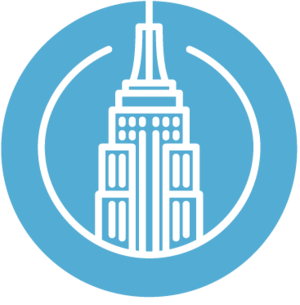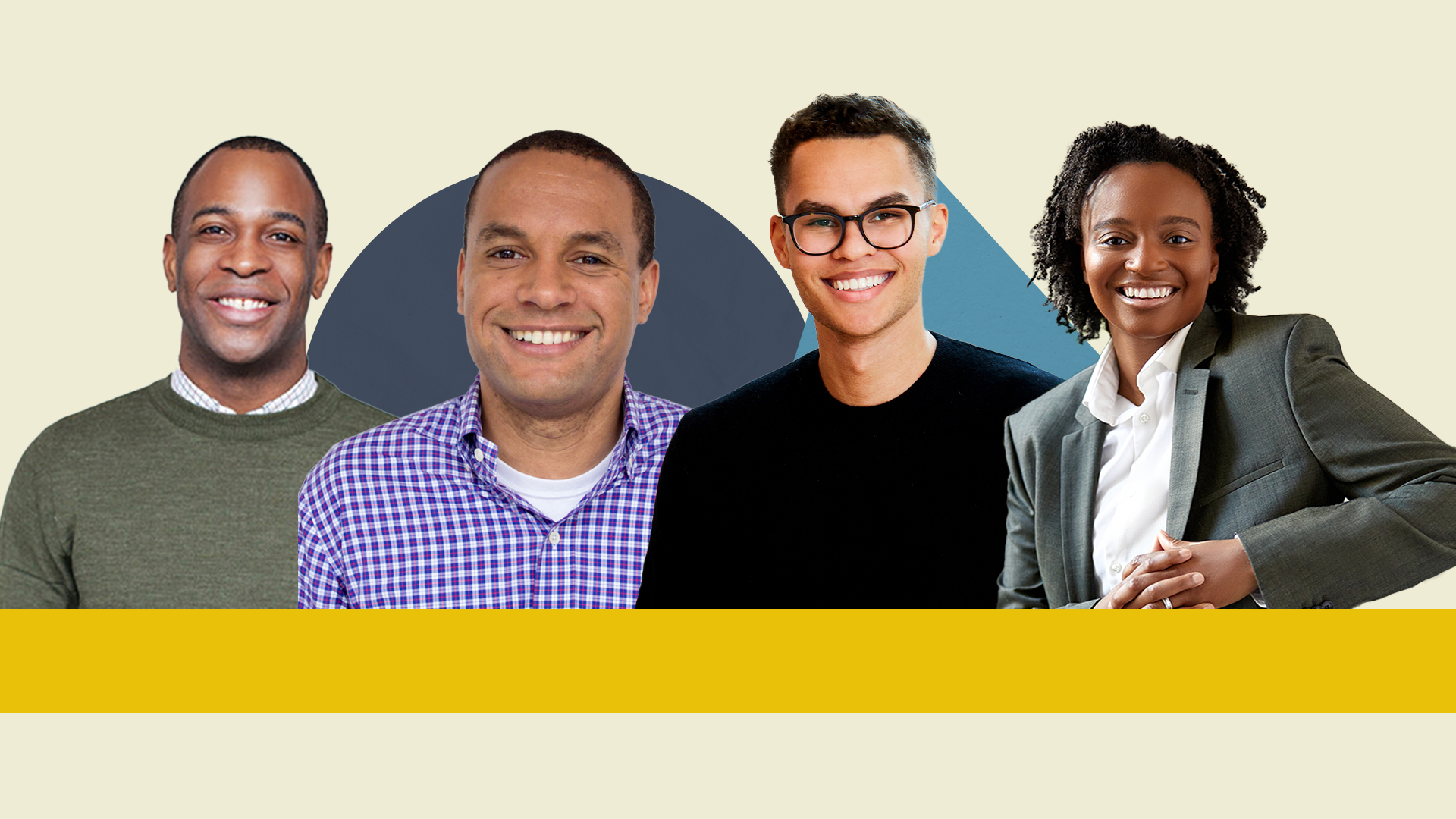Companies to Watch: Black Founders Powering New York Tech
The numbers tell a familiar story: Black founders raised just 1% of all US venture capital funding in 2022 — still. According to data from Crunchbase, that’s a slight drop from the 1.3% raised in 2021.
The current downturn, some argue, has made it easier for VCs to shelve funding commitments and other initiatives specifically targeting Black and other underrepresented founders. Still, there are notable bright spots: Today, Google for Startups announced the opening of the fourth Black Founders Fund (and second Latino Founders Fund). Since 2020, the Funds have deployed $20 million in cash to founders in the US, who have gone on to raise more than $190 million in follow-on funding.
If you’re a Black and/or Latino early-stage tech founder, learn more about the Funds and apply by March 26 here.
To close out Black History Month, we spoke with a group of Black founders about growing their businesses in NYC and the work still left to do in cultivating a more inclusive industry year-round. Meet this month’s NYC Companies to Watch:
MAE
What does your company do?
Mae founder and CEO Maya Hardigan: Mae is a culturally responsive digital-first solution built to address the specific clinical, social, and cultural needs of underserved expectant mothers, with an early focus on Black expectant mothers, those with the most striking disparities in maternal health outcomes. Mae has created a space where complete digital care meets culturally aligned, on-the-ground support from experts such as doulas, to drive positive pregnancy outcomes. Learn more at @maehealthinc.
A question we love to ask every founder: why New York?
MH: I’ve lived in NYC for 19 years, and I can’t imagine having founded Mae anywhere else. There is so much opportunity and such incredible, diverse talent — employees, partners, and mentors are all just a coffee shop away.
You spent a decade at Pfizer before making the jump into becoming a first-time founder. What was the most unexpected or challenging part of getting your own startup off the ground?
MH: I think my most significant challenge early on was wearing so many hats. Having come from a corporate environment for many years prior to founding Mae, I was accustomed to support. As a sole founder, I was now in a position where I was our Marketing, Product, HR, Finance, and Business Development teams all in one. The first year was incredibly hard, but I was so lucky to access early funding that provided a path for me to build an incredible team.
Another challenge was my shifting my role from purchaser to vendor. Having long been on the other side within a corporate entity, I am now pitching services to large healthcare partners. This required a bit of a reframe, but was a challenge I was ripe for and one that informed valuable personal learning and growth.
There was a major pivot to digital health solutions during the pandemic, of course, but are those tools going to have staying power? What do you hope healthcare looks like by the end of the decade?
MH: I do believe these tools have staying power. The pandemic shifted many of our perspectives and expectations around care. Collectively, we are more comfortable with virtual support and in some cases, prefer to access providers from the comfort of our own homes. In other cases, access to quality care is a barrier that digital health solutions help remove.
As healthcare consumers, we’ve become accustomed to a level of quality, convenience, and access from anywhere. As founders, we are able to create solutions that meet consumers where they are. It is my hope that by the end of the decade, we will have more solutions and vast options that meet our personal preferences and needs, take into account our lived experiences and priorities, and are inclusive of the culturally-responsive providers that so many of us seek, but may not otherwise have had access to.
Despite the swell of DEI commitments over the past few years, venture backing for Black-led startups has barely budged. What’s one step the tech ecosystem should take to better support Black founders and other entrepreneurs of color?
MH: I would challenge decision-makers within the tech ecosystem to reframe the definition of a successful founder. A shift away from only investing in the familiar will open a path for so many extraordinary Black founders to drive their solutions forward. I think we are able to bring our lived experiences into the solutions we’re creating and lead from a unique place of empathy, humility, and understanding. We are able to speak to a vast array of consumers and deliver the support they are seeking.
Okay, some rapid-fire questions. First: where do you get your favorite pizza slice?
MH: At home! I love a good family pizza night. We get our hands dirty, we have a lot of fun, and it may not be the best tasting pizza, but it’s by far my favorite.
What’s the best place in New York for a coffee or lunch meeting?
MH: My go-to for a coffee meeting is Ciao Gloria, which is in my neighborhood in Brooklyn.
What’s your favorite hybrid/remote work office hack?
MH: I put my Fitbit on as soon as I wake up in the morning. It buzzes when I’ve been sitting too long and reminds me to get on my feet, often and throughout the day. I think it helps me to step away, take a walk, and get some fresh air, even if only for a few minutes during a busy day. I know it’s a big help, both physically and mentally.
What’s the one piece of advice you’d give a peer founder spooked about the 2023 market predictions we’re all reading about?
MH: Market certainty ebbs and flows, but if you are addressing a critical need, interest in your solution will hold strong. Having said that, now is the moment to operate with fiscal prudence, and to make sure you’re spending the cash on hand in the most efficient way possible.
GEOCLOUD
What does your company do?
GeoCloud co-founder and CEO Abiodun Johnson: GeoCloud is a local search and community tech platform that creates customized location-based experiences for consumers, businesses, and government organizations to reach and engage with the people near them. We aim to nurture local relationships and build stronger communities. Our first product, uGeo, is a customized social map and local guide that helps you find people, events, places, and groups all in one app.
A question we love to ask every founder: why New York?
AJ: I fell in love with New York City as an undergrad at Dartmouth College. Instead of returning to Memphis, where I’m originally from, during holiday breaks, I followed my cousin Chris to Queens. I love the energy of the city and the diversity of people and industries.
How does GeoCloud — and the uGeo app — generate recommendations? Where is it sourcing location data from?
AJ: We ask our users for their interests during onboarding and at different points in the app experience. This allows us to tailor the content that they see on the map. For our recommendation engine we create models on our place, event, user, and group data. We pick top recommendations based on matching user models and what is getting the most engagement. We aggregate our content from open source and third-party partners such as Eventbrite, Meetup, and Google Places.
Have you seen any growth in local business activity through GeoCloud’s data? Are neighborhood- and outer-borough small businesses benefitting from more New Yorkers working from home (at least part of the week)?
AJ: Yes, we’ve seen a continued uptick in local searches for coffee shops, delis, and restaurants. We hypothesize that people are looking for places to grab a quick lunch or coffee while working remotely. We’re also seeing more searches for businesses that provide products such as office supplies and tech equipment.
Despite the swell of DEI commitments over the past few years, venture backing for Black-led startups has barely budged. What’s one step we could take to better support Black founders and other entrepreneurs of color?
AJ: A critical component for startup founders is getting in front of potential clients. I would like to see organizations like Tech:NYC foster meetings between major corporate and government tech innovation officers with Black tech founders to create commercial opportunities.
Okay, some rapid-fire questions. First: where do you get your favorite pizza slice?
AJ: La Vera Pizzeria on 26th and 3rd Ave in Manhattan has the best Margarita in the world!
What’s the best place in New York for a coffee or lunch meeting?
AJ: One of my favorite places was Haru Sushi on Wall Street, but I don’t think it’s around anymore. Another go-to is Sarabeth’s.
What’s your favorite hybrid/remote work office hack?
AJ: I usually like to work from home 2 to 3 days of the week, then find a place with a nice sitting area and ambiance to work the other days. CitizenM on the Bowery and The James Nomad are excellent places for that.
What’s the one piece of advice you’d give a peer founder spooked about the 2023 market predictions we’re all reading about?
AJ: Stay focused on building a product that solves a problem for your customers, and focus more on monetization.
EATOKRA
What does your company do?
EatOkra founder and CEO Anthony Edwards Jr.: EatOkra is a platform for people to find and shop with Black-owned food and beverage companies across the United States.
A question we love to ask every founder: why New York?
AE: New York is home — I was raised in Saugerties, about 90 miles from NYC. Fun fact: If I wasn’t in tech, I would have been a professional hip-hop dancer. After my time in the military, I chose to attend college at Fordham University while pursuing a professional career in dance. That was a nice plan … but it didn't work out that way. I chose instead to focus my effort on getting my computer science degree, attended a 19-week DevBootcamp program, and got my first jobs as a full stack engineer.
Building my technical career here in NYC has been great because the relationships I’ve made in the startup community have been instrumental to my personal and professional development. There are many different founder groups, technical groups, city government programs, and meetups that have really helped inform how I think and grow my business.
Talk a little bit about your founding story — it all starts with your first apartment in Brooklyn, right?
AE: After graduating from Fordham University in 2014, I moved to Jackson Heights, Queens, and shortly after, I was hired by BuildingBlok as a junior full stack developer. During my second year at BuildingBlok, I met my wife, Janique, on Tinder. After dating for a while, we moved in together in a borough completely new to us: Brooklyn. Our apartment didn’t have a kitchen and appliances — and that’s what prompted my wife to plant the seed that we should build an app for us to find and support Black-owned restaurants in our new neighborhood.
Now that unique downloads of the app have skyrocketed, how are you tackling user demand, both from the customer side and the restaurant side? What’s top of mind for EatOkra’s roadmap in 2023 — onboarding more restaurants?
AE: EatOkra has achieved over 500,000 app installs! Having heard from both owners and eaters, we decided to build a more economical ordering solution where eaters can order from their favorite Black-owned restaurants on the platform. Additionally, we are launching an eLearning platform in partnership with Uber Eats where they are giving 50 scholarships to qualified restaurant operators. The goal of these courses is to improve business survival rates and annual profits.
Despite the swell of DEI commitments over the past few years, venture backing for Black-led startups has barely budged. What’s one step we could take to better support Black founders and other entrepreneurs of color?
AE: Meet founders where they are. Consider supporting Black-led startups on community equity platforms like Wefunder. (We recently launched our fundraise on WeFunder.) With as little as $250 anyone can own stock in EatOkra. If you are not able to support financially then champion the company by being a vocal cheerleader for the brand and share the product or service with your community. And of course, warm introductions to people who can help the business grow are always helpful.
Okay, some rapid-fire questions. First: where do you get your favorite pizza slice?
AE: Roberta’s Pizza (the Bushwick location)!
What’s the best place in New York for a coffee or lunch meeting?
AE: I have a few favorites: BKLYN Blend, Zaca Cafe, and Brooklyn Tea.
What’s your favorite hybrid/remote work office hack?
AE: Manage interruptions by turning your wifi off when you want to focus. And create a frequently-used document with links and any data you often find yourself needing right away.
What’s the one piece of advice you’d give a peer founder spooked about the 2023 market predictions we’re all reading about?
AE: Do your own research, look at those who are doing what you are doing, and use it to make more informed decisions.













